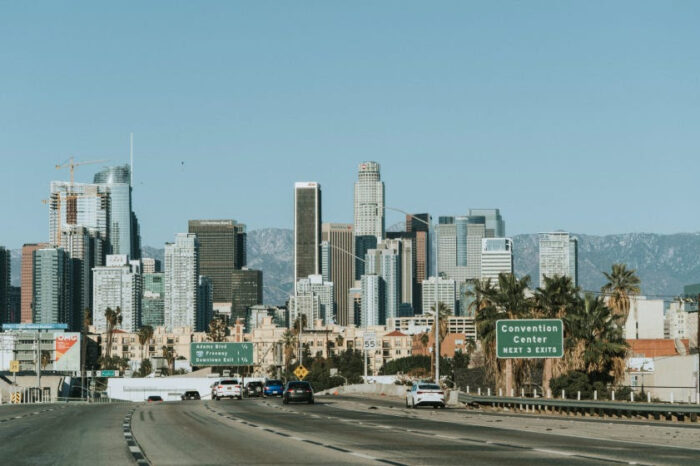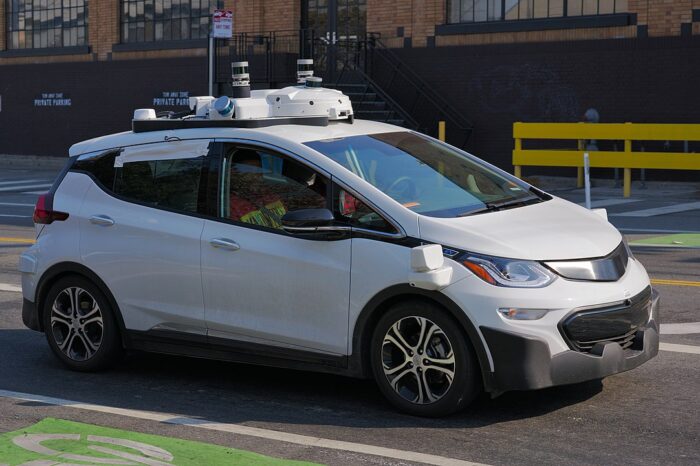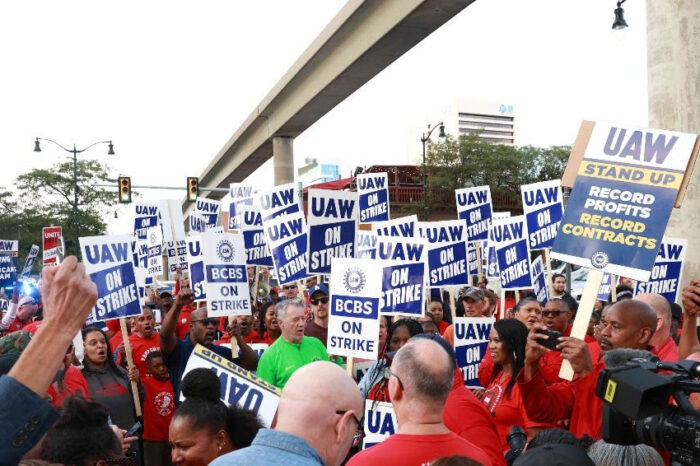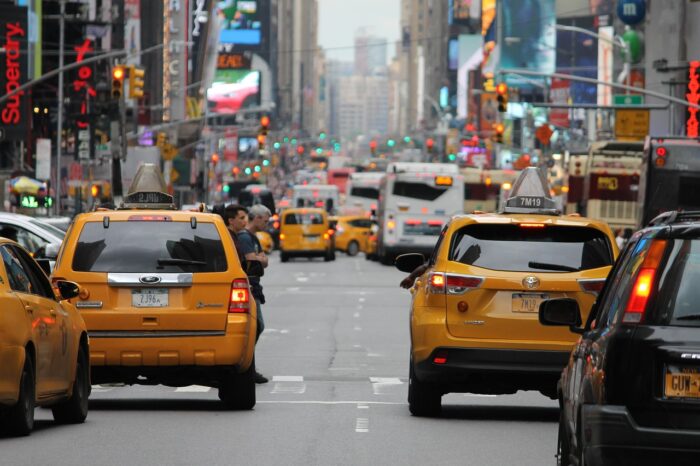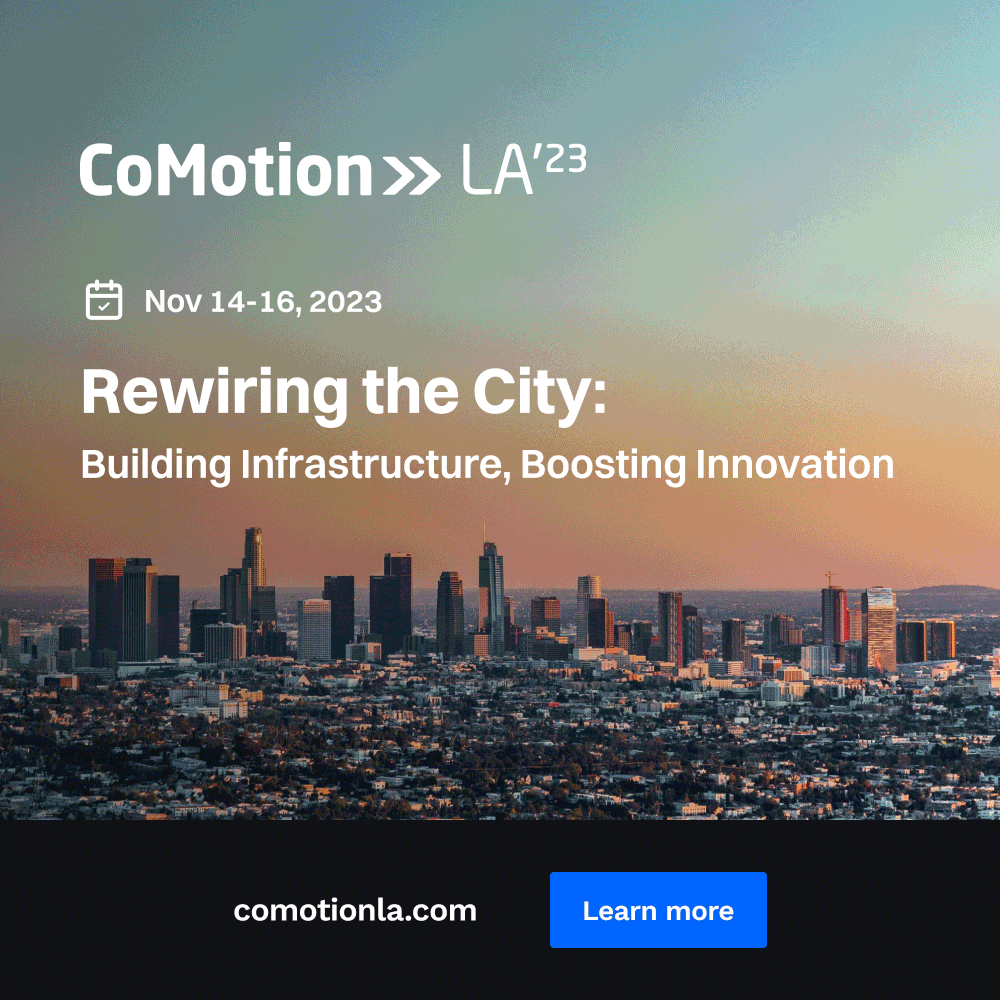It sounds too good to be true, and perhaps it is: Toyota claims it has figured out a way to develop a solid-state EV battery that will have over 700 miles of range and be able to fully charge in 10 minutes. But, says Toyota, commercial versions won’t be ready before 2027.
Meanwhile, Los Angeles-based Universal Hydrogen completes an 800-mile flight that is partially hydrogen-powered, hopefully a key step towards decarbonizing air travel. In other air news, Joby Aviation, an eVTOL group, gets FAA approval to begin testing in California. While Zoox begins autonomous rides in Vegas, Cruise and Waymo have encountered a formidable adversary in San Francisco: traffic cones.
Also, while Elon Musk says for the umpteenth time that this will be the year that Tesla will achieve full autonomy, his buddy Ron DeSantis baffles members of his own party by vetoing a bill that would have encouraged local governments to buy cost-efficient (read: EVs) cars. In happier news, formerly car-centric downtown business groups begin to think differently about infrastructure and Colorado goes all the way on e-bike rebates. And last but not least, what should cities do about these hotter-than-hell temperatures?
![]()
Toyota’s battery breakthrough: The notoriously EV-hesitant Japanese auto giant claims it has discovered a way to create solid-state batteries that can deliver 745 miles of range and be fully charged in only 10 minutes. Keiji Kaita, who oversees EV research and development for Toyota, tells the Guardian the automaker is aiming to deliver vehicles with solid-state batteries by 2027. We shouldn’t get ahead of ourselves –– promising prototypes often don’t end up scaling. But let’s hope this one does!
A milestone for hydrogen flight: Universal Hydrogen, the three-year-old startup developing carbon-free air travel, conducts an 800-mile test ferry flight from Moses Lake, Washington to the Mojave Air & Space Port in California, its new testing headquarters. Currently one side of the 40-seat aircraft is powered by a hydrogen fuel cell powertrain. It hopes to begin commercial operations in late 2025.
DeSantis’ curious EV veto: Florida Gov. Ron DeSantis vetoes a bipartisan bill that would require state and local governments to favor vehicle fleets with the “lowest lifetime cost,” a sensible update to existing state law, which simply requires governments to opt for cars with the best gas mileage. Some in DeSantis’ own party say they don’t get it ––shouldn’t a self-styled conservative reformer want taxpayers to get the best bang for their buck? Democrats meanwhile, aren’t hesitating to proffer a theory: the governor is focused less on Florida than on Iowa, whose powerful ethanol industry is threatened by EVs.
Joby gets OK for test flights: The eVTOL startup gets approval from the FAA to begin test flights of its prototype air taxi, which is designed to carry four passengers and a pilot at 200 mph. The Santa Cruz company recently manufactured the prototype at a plant in Marina, Calif. that was built jointly with Toyota, its largest investor.
Saudi Arabia’s shortage of Uber drivers: Saudi Arabia now allows women to drive, but it doesn’t allow non-citizens to drive for ride-hailing services. In a country where much of the service sector is made up of foreigners, this has predictably led to long waits for Uber customers.
The power of the traffic cone: It turns out a flimsy orange cone is enough to stop a car. At least if the car in question is an autonomous vehicle operated by Cruise or Waymo. Opponents of the robo-taxi operators in San Francisco have started a gorilla campaign to disable the vehicles, which they’ve discovered they can do simply by placing a traffic cone on their hoods.
Zoox hits the Vegas streets: Amazon’s autonomous driving subsidiary, Zoox, begins to offer employees in Las Vegas driverless rides in its bubbly four-person shuttles that lack steering wheels and pedals. The company says it’s one step towards launching commercial operations in Sin City.
The best e-bikes for every kind of rider: TechCrunch has a handy list of the best e-bikes for different types of customers. That includes seniors, mountain bikers, those looking for a cargo bike and, last but not least, those of us who are budget-conscious.
Elon’s says this will be the year: It’s now a decade-old annual tradition: Elon Musk predicts that Tesla will deliver fully autonomous driving by the end of the year. Speaking via video link to an AI conference in Shanghai, the Tesla CEO said he believed the automaker would achieve “full self-driving without human supervision,” which he later described as “Level 4 or Level 5.” Tesla’s existing autonomous capabilities are typically described as Level 2.
![]()
Downtowns learn to love bike lanes: Recognizing that downtowns can no longer depend on suburban commuters, business groups that have traditionally been focused on making central business districts accessible to motorists are increasingly embracing improvements aimed at pedestrians and cyclists. Better late than never!
Colorado shows the way: Many cities and states around the U.S. have been offering residents rebates for e-bikes. The only problem is that the number of rebates is capped and typically does not come close to meeting demand. Next year, Colorado will become the first jurisdiction to lift a cap on its rebate program. David Zipper, writing for CityLab, calls on other states to follow suit.
A Kiwi housing crisis: The Guardian looks at the effects of a severe housing shortage in Queenstown, a popular vacation spot near the southern tip of New Zealand. Many of the city’s service workers rely on couch-surfing because they can’t find available homes to rent, perhaps in part due to well-intentioned regulations that have discouraged landlords from leasing properties to long-term tenants.
Will cities stand up for pedestrians? Pedestrian deaths have risen 77% in the past decade, likely driven by an increase in distracted (read: smartphones) driving and ever-bigger SUVs. Banning large cars is probably a non-starter politically, but in the meantime CBS News talks to advocates and elected officials pushing for long-overdue changes to the way American cities design streets.
What are we going to do about this heat? Veteran environmental writer Jeff Goodell writes about the emerging era of extreme heat and the associated risks, particularly in already-hot places like Texas., where he lives. Despite his disgust with state leaders who refuse to acknowledge and confront global warming and its effects, he notes with hope that rising temperatures are forcing cities to consider ways to design more livable communities. More shade, more pools etc.
A rare story of public transit success in rural America: The Lansing State Journal takes a look at the Clinton Area Transit System, an agency that serves rural Clinton County in central Michigan. Since voters approved a tax increase that allowed it to expand its bus service, the agency now has higher ridership than before the pandemic. Although it doesn’t provide urban-style frequent service, it is a crucial transportation option for many living on the margins in car-centric communities
Enjoy the Week in Review? Get it delivered directly to your inbox by signing up for the CoMotion NEWS newsletter.
